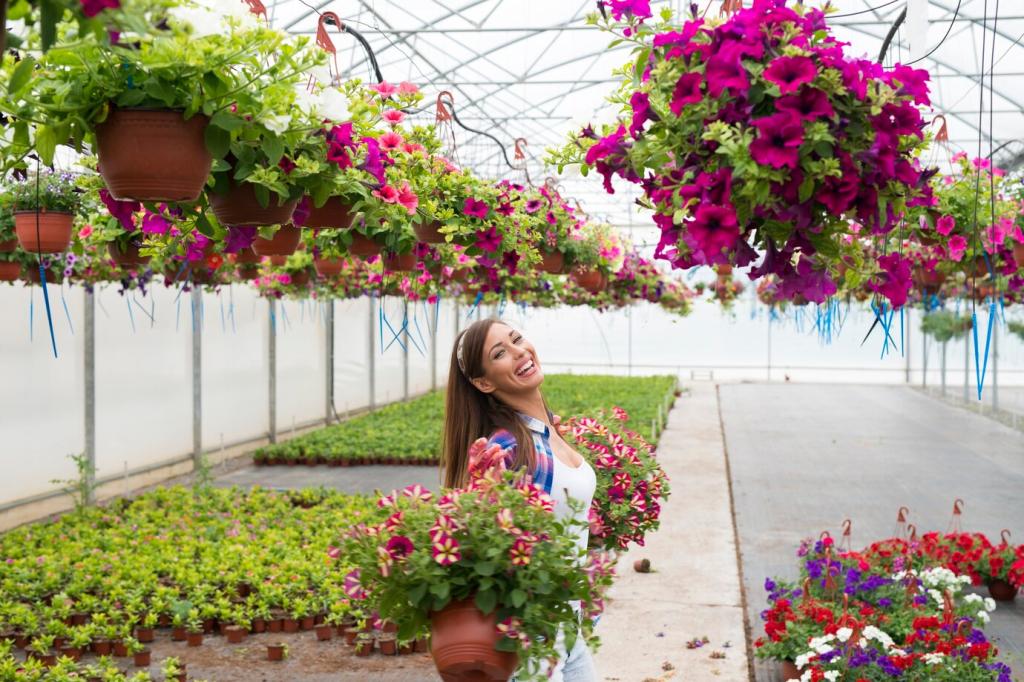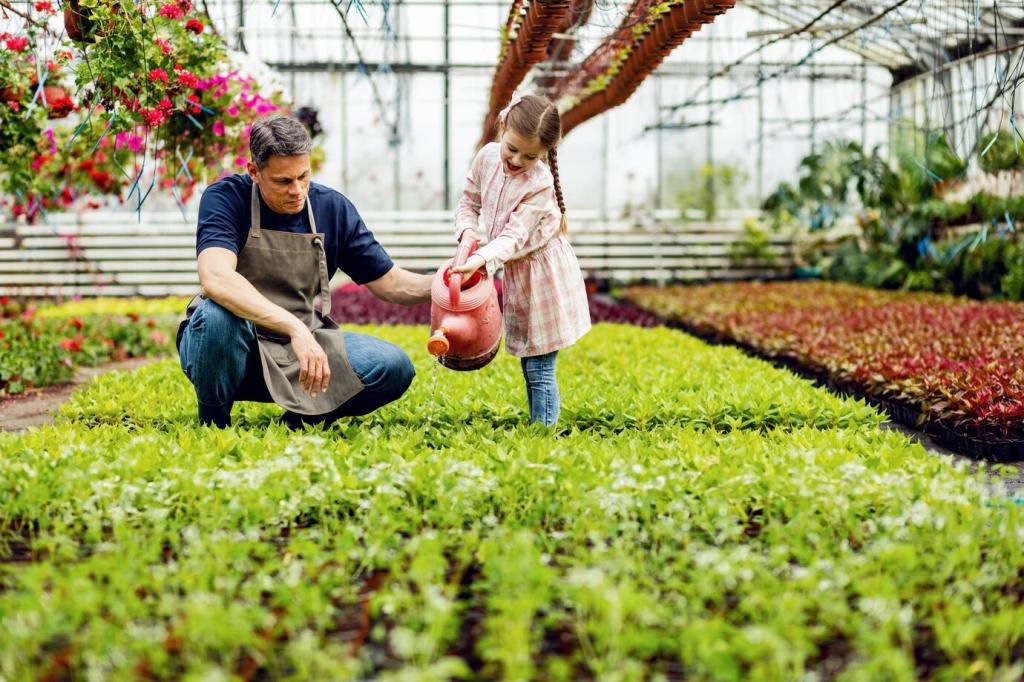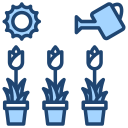
Using Smart Technology for Efficient Urban Gardening
Urban gardening is gaining ground in cities around the world, offering residents the chance to grow fresh produce and beautiful plants in limited spaces. Smart technology is transforming this practice, introducing a new level of efficiency, convenience, and productivity. By incorporating intelligent devices and data-driven systems, urban gardeners can overcome space, time, and resource constraints, creating thriving green spaces that are easier to manage and more sustainable. This guide explores how smart technology intersects with urban gardening, revealing the innovative solutions that are available for city dwellers determined to cultivate efficient and lush gardens.

Previous slide
Next slide
Automation and Remote Monitoring
Automated Irrigation Systems
Watering is a critical aspect of any garden, but in urban settings, it can be challenging to maintain a consistent schedule. Automated irrigation systems use timers and moisture sensors to deliver precise amounts of water precisely when needed. These systems not only ensure that each plant gets the right amount of hydration regardless of the owner’s presence or memory but also prevent overwatering and promote water conservation. The convenience of controlling or programming irrigation from a smartphone app means that even the busiest city dwellers can maintain lush, thriving gardens with confidence and ease.
Smart Environmental Sensors
Environmental sensors play a vital role in providing detailed, real-time feedback on key factors affecting plant health. Devices that track humidity, temperature, light exposure, and soil composition allow urban gardeners to have a precise understanding of their garden conditions at any moment. This data is communicated to apps or control panels, empowering users to make proactive adjustments or rely on automated systems to respond instantly. Smart sensors can even generate alerts for extreme conditions, helping to prevent plant stress or loss in unpredictable urban climates and optimize the growth environment for each individual plant species.
Remote Garden Management Apps
The proliferation of smartphone technology has enabled the development of intuitive apps that put complete garden control at your fingertips. Through these apps, urban gardeners can arrange watering schedules, adjust lighting, monitor plant health, and receive tailored gardening advice based on live sensor input. Notifications and historical data tracking allow for continual learning and improvement, while remote access ensures you are always in touch with your garden—even when traveling or at work. This connectivity eliminates the need for guesswork and fosters a more interactive, informed, and enjoyable gardening experience for tech-savvy city residents.
Sustainable Solutions for Urban Growers
Resource Conservation with Smart Technology
Water scarcity and energy consumption are prominent concerns in urban gardening. Smart systems combat these issues by applying resources only when and where needed. Precision irrigation, guided by real-time soil moisture readings, significantly cuts down on water waste compared to traditional watering techniques. Likewise, energy-efficient grow lights equipped with automatic timers or daylight sensors only operate when supplemental lighting is necessary, reducing power consumption. Through careful data analysis and precise resource allocation, gardeners can maintain abundant plots while treading lightly on the planet.
Reducing Chemical Dependency
Urban gardening often faces challenges with pests and nutrient management, which traditionally rely on chemical fertilizers and pesticides. Smart technology introduces more sustainable solutions, such as integrated pest monitoring and automated nutrient dosing based on plant needs. By using targeted interventions prompted by sensor data and AI-driven insights, gardeners minimize the use of harmful chemicals, protecting both their crops and the surrounding urban ecosystem. This results in healthier produce, lower costs, and a reduced environmental footprint—making city gardens both productive and planet-friendly.
Enhancing Biodiversity and Urban Ecosystems
Smart gardens can serve as havens of biodiversity within urban environments. By leveraging data on plant varieties, pollinator visits, and microclimate trends, gardeners can create diverse, resilient ecosystems even in limited spaces. Automated climate controls and habitat monitoring support a broader range of plant and animal life, from native wildflowers to beneficial insects. These green spaces not only beautify cities but also contribute to local ecological balance, improved air quality, and enhanced well-being for urban residents. Smart technology makes it easier than ever to nurture thriving urban ecosystems that benefit both people and the planet.
